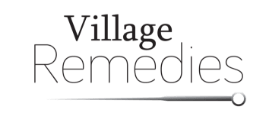Chinese Medicine for Hay Fever - Stop Sneezing Today!
Spring has sprung! Unfortunately this also marks the beginning of the roughest season of the year for those with allergies and hay fever, where stuffy sinuses, runny noses and itchy watering eyes now become the norm. For some it’s only mild, but for others it can be totally consuming, preventing you from thinking clearly and forcing you to avoid too much time outdoors.
Antihistamines, decongestants and nasal sprays may offer some relief, but for many, the misery of hay fever continues throughout the season. At Village Remedies in Balmain, Sydney, we see people who suffer from mild to severe seasonal allergies and we routinely use Chinese medicine for hay fever. In this post, we’ll explore allergic rhinitis and how Chinese medicine and acupuncture approaches it, along with some simple acupressure techniques you can try for relief today.
What Is It?
Allergic rhinitis is classified as an allergic reaction of the nasal passages from environmental allergens such as pollens, dust, animal hair and mould. It affects an estimated 18% of the Australian and New Zealand population.
The effects of this allergic reaction can range in severity from a mild annoyance to pronounced disruption of day to day function. As it continues, it can start impacting your life beyond your nose:
- Sleep quality suffers from snoring and/or irritation
- Your energy drops because you’re not sleeping well
- You find it hard to focus because it’s hard to breathe and your eyes are irritated
- Headaches develop from the pressure in your sinuses
- You become more prone to sinus infections or ear infections
- If you’re asthmatic, your asthma symptoms can be harder to manage
Other than trying to avoid known allergens as much as possible, your typical treatment options include anti-histamines, decongestants and nasal sprays. For many, these options only offer moderate relief. Traditionally, Chinese medicine has been used for allergies and is worth considering if you continue to suffer.
How Can Chinese Medicine Help Hay Fever?
In Chinese medicine, we look for root causes as to why your immune system may be overactive to environmental allergens and seek to help your body better regulate your immune responses.
To do this, a Chinese medicine practitioner will take you through a detailed health history to get an overall picture of health. We need to understand how much the hay fever affects your life, as well as how your body is healing and recovering in general. This will involve checking in with the quality of your digestion, sleep, energy, stress and even mood. Feeling the pulse and looking at the tongue also helps your Chinese medicine practitioner better tailor the treatment for you.
Often we find issues with digestion and a heightened stress response to be contributing factors to the severity of hay fever and allergic symptoms, along with impaired circulation of the sinuses. A gut microbiome that promotes inflammation and a body in an elevated fight or flight state (sympathetic nervous system dominance) that increases reactivity need to be addressed, not only for the benefit of your nose, but for your health in general.
Chinese medicine for allergic rhinitis includes acupuncture and Chinese herbal medicine treatments, often combined for greater effect. These are used with the goal of reducing severity of your allergy symptoms, improving quality of life and supporting overall health. Treatment courses are tailored to you and your needs, as well as what time of the year you come to see us.
Starting treatment in Spring when allergies are at their worst will typically mean we need to treat more frequently to manage the current symptoms. On the other hand, starting treatment outside of Spring, when symptoms are less noticeable, the treatments can focus more on correcting underlying causes and be less frequent.
As with anything, even if it has worked for others, you have to make sure it works for you. At Village Remedies in Balmain, Sydney, we will evaluate your response to treatment early on, to see if Chinese medicine and acupuncture is a good fit for you. Book online or contact us today to see if we can help with your hay fever.
Acupuncture Research for Allergic Rhinitis
Theory is nice, but having some research to back things up is better. For the research advocates, a systematic review and meta-analysis of research concluded that “acupuncture could be a safe and valid treatment” for those with allergic rhinitis. Acupuncture has also been shown to have various anti-inflammatory effects that have direct relevance to those with allergic rhinitis. For those with asthma which is exacerbated by allergic rhinitis, acupuncture, when combined with standard care, “seems to be a useful and cost-effective add-on treatment” for improving quality of life for those with allergic bronchial asthma.
Acupressure for Hay Fever
Suffering right now? Here are some videos showing you simple acupressure points that may help give you some relief straight away.
Reduce sinus pain with he gu
Mu finger point to stop runny nose
Sinus help with si bai (stomach 2)
Reduce sinus pain with zan zhu (bladder 2)
Want to try Chinese medicine for your hay fever? Book online or contact us today.



